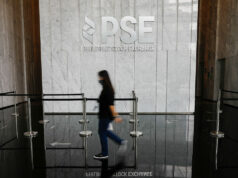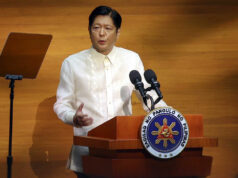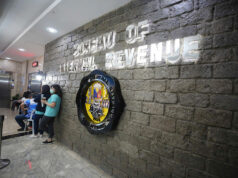Duterte inks law regulating Islamic banks
PRESIDENT Rodrigo R. Duterte last week signed into law the regulatory framework for Islamic banks in the Philippines.
Republic Act No. 11439 or “An Act Providing for the Regulation and Organization of Islamic Banks” was signed by Mr. Duterte on Aug. 22, but the copy was released by the Malacañang on Friday.
Under the law, the Bangko Sentral ng Pilipinas (BSP) will exercise regulatory powers and supervision over the operations of Islamic banks and issue the implementing rules and regulations on Islamic banking.
The measure, which was passed by the House of Representatives on Nov. 20, 2018 and by the Senate on June 3, 2019, will take effect 15 days after its publication in the Official Gazette or in a newspaper of general circulation.
BSP Governor Benjamin E. Diokno said said the law’s enactment will unlock the full potential of Islamic financing in fostering inclusive economic growth.
“With a well-defined regulatory framework now in place, the BSP looks forward to seeing greater participation in Islamic financing by both domestic and foreign banks,” the central bank chief said in a separate statement on Friday.
“This is expected to widen opportunities for Muslim Filipinos, including those from the Bangsamoro Region, in accessing banking products and services. This is a great stride in our financial inclusion mandates,” he added.
The nature of Islamic banking refers to a banking business with objectives and operations that do not involved riba (interest) as prohibited under the Shari’ah law and which conducts its business in accordance with the principles of the Shari’ah.
Islamic banks to be created under this law shall comply with existing laws applicable to a private corporation engaged in banking, such as The Corporation Code of the Philippines as amended and the requirements of the respective regulatory agencies.
The law also mandates Islamic banks to constitute a Shari’ah Advisory Council, which will be composed of experts in Shari’ah, banking, finance, law and other related disciplines. The council will provide advice and to review applications of Shari’ah principles, but will not be allowed to be directly involved in Islamic banks operations.
Under the law, Islamic banks will be allowed to perform banking services, such as accepting or creating current, savings accounts and investment accounts, accepting foreign currency deposits, as well as undertake various investments in all transactions allowed by Shari’ah principles.
According to the law, the capitalization requirements of an Islamic bank shall be equal to that prescribed by the BSP for a universal bank.
The Islamic banks may also take the necessary steps to have their shares listed in the stock exchange.
So far, the only Islamic bank in the country is the Al Amanah Islamic Bank, established in 1972.
The Development Bank of the Philippines took full control of Al Amanah’s operations in 2008. — Mark T. Amoguis



